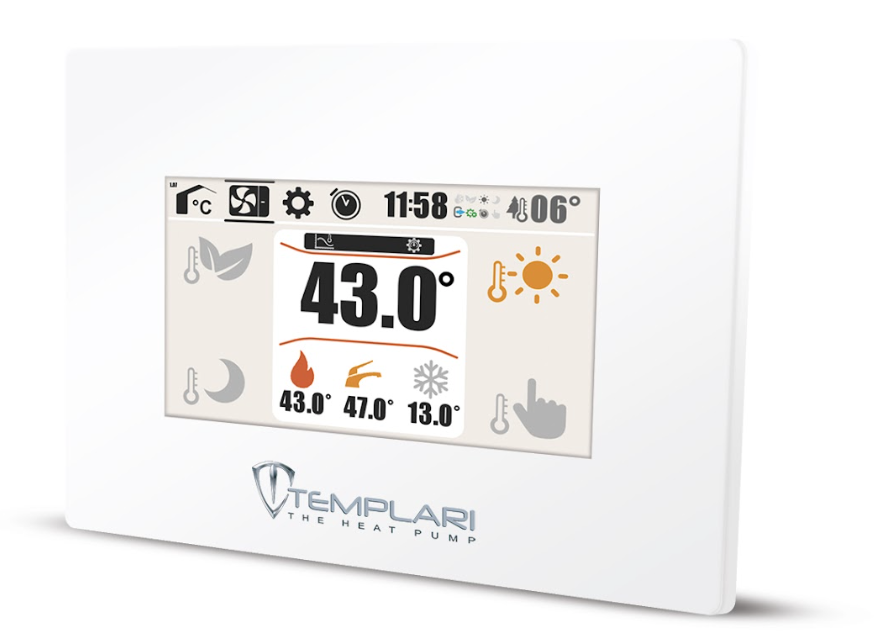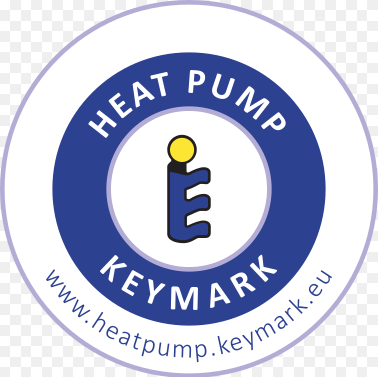Heat pump air conditioning: what they are and what advantages they offer
Heat pump air conditioning stands out as an advanced technology that offers several significant advantages over traditional heating and cooling systems
These systems are ideal for those seeking an eco-friendly option that nonetheless does not compromise home comfort while providing significant energy savings.
Not only do heat pumps cool rooms during the summer months, they are capable of reversing their operating cycle to effectively heat home environments during the winter.
This dual functionality makes them a suitable solution for year-round use, even in particularly cold or warm weather.
So let’s see how a heat pump air conditioner works, what its benefits are, and what tax incentives are available for those who choose this solution.
How does the heat pump air conditioner work?
The heat pump air conditioner represents an advanced and very versatile technology that differs from traditional air conditioners in its ability to cool and heat rooms.
Central to the operation of the heat pump air conditioner is the principle of heat transfer, rather than direct generation.
This system does not create heat as much as it displaces it by exploiting the heat available in external sources such as air. Even when outside temperatures are cold, these natural sources contain useful heat that can be captured and transferred.
Then there is the closed refrigerant circuit, which through the change from liquid to gaseous state allows the refrigerant to absorb and release heat.
In heating mode, the refrigerant, passing through the external evaporator, absorbs heat from the environment. Here the refrigerant evaporates by changing from liquid to gas.
The compressor compresses the refrigerant gas, increasing its temperature and pressure. As the compressed gas passes through the indoor condenser, it gives up its heat to the indoor air, heating the room.
One of the most advantageous features of the heat pump air conditioner is its ability to reverse the heating cycle to cool the interior during the warm months.
In cooling mode, the cycle is reversed: heat is extracted from inside the house and released outside, thus cooling the indoor environment.
In addition to heating and cooling, heat pump air conditioners such as Templari’s Kita Air produce domestic hot water, further increasing energy efficiency in the home.
Heating and cooling your home, the 7 benefits of a heat pump air conditioner
Heat pump air conditioners offer a number of notable benefits that make them an excellent choice for those seeking an efficient system for heating and cooling rooms through a single system.
Here are the main advantages:
- Reduced operating costs: compared with conventional heating and cooling systems, heat pump air conditioners are significantly more efficient. This translates into lower energy consumption and, consequently, lower utility bills;
- high coefficient of performance (COP): when operating in heating mode, heat pumps can have a COP ranging from 3 to 5 or more, meaning that for every unit of electrical energy consumed, they produce three to five units of thermal energy;
- heating and cooling in one system: heat pump air conditioners are capable of heating and cooling rooms, eliminating the need to install two separate systems. This not only saves space, but also installation and maintenance costs;
- Uniform heat distribution: unlike heating systems that can create hotter or colder zones, heat pumps distribute heat more evenly through the house especially when used with modern systems such as underfloor heating;
- use of renewable energy: heat pumps use renewable heat sources from the surrounding environment, reducing dependence on fossil fuels and decreasing the carbon footprint of the home;
- low-impact refrigerants: many modern models of heat pump air conditioners use refrigerants with low global warming potential, in compliance with the most stringent environmental regulations;
- modern controls and automation: most heat pump air conditioners are equipped with advanced digital controls and can be easily integrated into home automation systems for optimal home climate control-such as HOUSE CLIMATE CONTROL, the control system created by Templari for remote heat pump management.

Here is the Templar heat pump control interface
Saving on energy: the 2 tax deductions currently available for those who choose heat pumps
Adopting a heating and cooling system such as a heat pump not only improves the energy efficiency of your home, but can also lead to significant tax benefits.
The government has introduced incentives to encourage citizens to invest in environmentally sustainable technologies. Here is an overview of available deductions:
- Ecobonus and 65% Deductions: a 65% tax deduction is available on the cost of purchasing and installing a heat pump. This deduction is applicable for expenses incurred for high-efficiency winter and summer air conditioning systems, as well as for the production of domestic hot water. The deduction can be divided into ten equal annual installments, making the tax burden more manageable over time;
- Conto Termico: offers a direct financial contribution to cover part of the expenses incurred for the installation of high-efficiency heat pumps.
An important clarification: in order to get detailed and up-to-date information on currently valid tax incentives, it is best to inquire with a professional.
In fact, deductions are subject to many changes over time.To learn more, contact us, and we will be happy to help you understand what deductions you can use to install your new heat pump.
The 5 basic requirements to benefit from credit assignment
Credit assignment is a practice that allows holders of tax deductions for energy efficiency work, such as the installation of heat pumps, to “sell” their tax credit to a financial institution or other private party.
This process allows for an immediate benefit instead of waiting for the deduction to be spread over subsequent tax years. Here are the key requirements for accessing this opportunity:
- documentation:
- invoices and receipts: it is essential to keep all invoices and receipts showing the expenses incurred for the installation of the heat pump system;
- Energy Performance Certificate (APE): you will need to provide an APE that attests to the improvement in the energy performance of the property resulting from the interventions made;
- Compliance with technical standards and regulations: the installed heat pump must comply with specific technical and performance requirements defined by current regulations, ensuring that the installation actually contributes to energy efficiency improvement;
- agreement with the purchasing entity for the assignment agreement: a formal agreement must be drafted with the entity purchasing the tax credit, which specifies the amount of the assigned credit and the terms of the assignment;
- communication to the Internal Revenue Service via assignment notification: you will have to notify the Internal Revenue Service of the assignment of the credit, following the detailed procedures provided by the agency. This step is crucial to ensure the legality and transparency of the transaction
- deadlines and timelines: make sure you meet all tax and procedural deadlines to fully benefit from the credit assignment, thus avoiding delays or problems with tax authorities.
As it is easy to see, in order to access the tax incentives, a suitable heat pump system that meets certain standards must be chosen.
In addition to this, however, a heat pump represents an investment in the medium and long term, and it is therefore necessary to make an informed choice so as to purchase an excellent system in terms of yield and performance.
Templari heat pumps are an ideal choice because they offer a powerful, environmentally friendly and incredibly efficient solution. Thanks to their advanced 100% Made in Italy engineering, these heat pumps stand out from other domestic systems for several reasons:
- great energy efficiency: KITA heat pumps use the refrigerant gases R290 and R32, which significantly reduce environmental impact, with an extremely low global warming potential (GWP) compared to conventional gases. These gases enable more efficient and less expensive operation, reducing CO2 emissions by up to 60 percent compared to combustion systems – we discuss them here;
- versatility: designed to operate effectively in a wide range of outdoor conditions, KITA heat pumps can operate down to temperatures of -25°C, providing year-round comfort from winter heating to summer air conditioning;
- intuitive and remote control: through the HOUSE CLIMATE CONTROL (HCC) system, every aspect of the air conditioning system can be monitored and adjusted remotely, using a touch display or via smartphone. This enables optimal home temperature management, even remotely;
- ease of installation: installation of KITA heat pumps is quick and noninvasive, adapting to both new construction and renovations, thanks in part to their compact and discreet design (such as the latest XS arrivals, which are also perfect for small rooms);
- durability and reliability: backed by rigorous HP KEYMARK certification, these heat pumps are independently tested to meet the most stringent European standards for energy efficiency and safety.

Heat Pump Keymark certification obtained by Templari
Due to their outstanding performance, Templari heat pumps qualify for various tax deductions and incentives, making the investment even more affordable and profitable.
Would you like to learn more about the incentives available on heat pump air conditioners? Contact us, we will be happy to help you.

